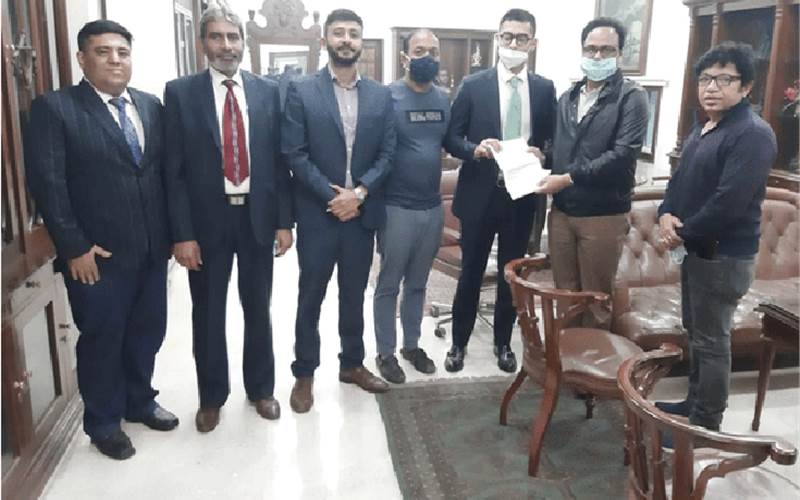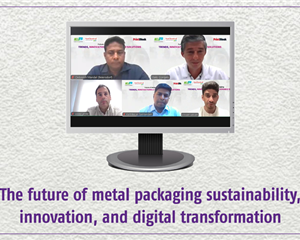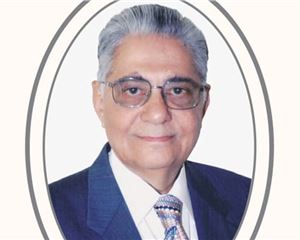Our customers have to be satisfied
Don’t write-off web offset yet. As Rishab Kohli, director, The Printers House, explains to Rahul Kumar, there is a future yet, and he has proven it in the last one year, by securing some big orders while transforming the company towards a customer-centric approach
28 Apr 2021 | By PrintWeek Team & Rahul Kumar
Established in 1946 by KD Kohli, The Printers House, known in the industry simply as TPH, has a long and storied history. Indeed, we cannot write the history of offset printing in India without the mention of TPH. Now, the third generation of the family business, Rishab Kohli, has taken over, and already, he has made some remarkable strides.
Since assuming the leadership possible after his return from the US, even in the middle of the pandemic, he has achieved two remarkable deals — a large order for four locations of an established newspaper in Odisha, and an export deal to Myanmar.
The export order to Myanmar is a fully automated shaftless machine, which showcases the technological capabilities of TPH and the company’s ability to continued innovation in printing technology.
The order in Odisha for four different locations of the newspaper Sakala was also a great achievement and the beginning of a brand-new partnership for TPH with the Sakala team.
Rishab Kohli, director, The Printers House, is more than ready to take the business to new heights along with his team of directors and management. “When I returned to India in 2019, the company as well as the industry was going through a rough patch. I had certain ideas and certain philosophies I wanted to add to TPH that I had hoped would boost our business and potential. My team of directors and management really got on board, which is why we are perhaps doing better than most today.”
Kohli joined TPH in 2014-15, in exports briefly. After that he was trained in the US, by an ex-Goss veteran and top executive, no less. He knew Kohli’s grandfather well, as he had a partnership with Goss. Kohli’s international exposure also includes his schooling in Scotland and further pursuing his education in business and economics in the US from Georgetown University.
TPH today
Right now, TPH has a large infrastructure, with three production plants in Faridabad, Haryana. The first plant is for mechanical engineering, the second is for electrical and assembly and the third is focused on research and development. The company also has a large number of agents abroad. Additionally, there are plans to open offices in Africa, and closer home, they have already opened a new branch office in Bhubaneswar, Odisha.
Kohli believes in a hands-on approach and himself takes care of a lot of the marketing activities, though there is a designated head of domestic and international marketing. The company now has ten branches across India, with sales and service setup at every branch.
Customer-centric
“It’s a belief in a customer-centric approach that will push us and our industry in the right direction,” says Kohli. “I had to really sit everyone down and say, understand what you’re trying to sell. Understand what our customers want. After all, we are working for our customers. I think our industry has forgotten this fact. It has been a seller’s market rather than a buyer’s market for so long and the web industry has been found wanting in their response to this changed scenario.”
He explains: “We made high quality, web offset printing presses, sold it, and then sat back and relaxed. We didn’t focus on where the customers’ revenue was coming from? Or how can we save costs for the customer while running the machine? Or how do we help the customer?”
He adds that the need of the hour is to change according to customers’ needs and business model.
Kohli says the company has now covered all aspects of what a customer wants, and he credits this approach to TPH’s growth. Along with this philosophy, the company is also developing new products, including a new spare parts department.
“It’s all encapsulated by a customer-centric approach, which I believe is why we are the leader in the web offset space today,” he adds.

Team TPH
Finding opportunities
Just before the pandemic hit, the web offset industry was struggling, yet, for Kohli, it was an opportunity. “This year we’ve been able to solidify ourselves as the most proficient supplier of web offset printing presses in India.”
He says even during Covid-19, the company did not shut a single unit and was able to do business at such a level that no salary cuts were required.
With regards to diversification, he adds, “Of course, every businessman looks towards diversification, but at the moment, our R&D division is focused on completing certain projects in the web offset space. Those will be unveiled for the web offset industry in 2021.”
In terms of opportunities during the Covid-19 pandemic, he says, “We could survive because we took Covid-19 as a challenge. This became an opportunity for us to gain market share and increase our global footprint in a transformed and brand-new market. When my grandfather started the business, we grew and adapted with the industry. In the future too, we want to grow and adapt with the industry. I have ambitious and extremely experienced people around me that want to achieve this very goal.”
TPH is hungry to serve the industry and grow. But is the market ready for more web offset machines?
Kohli explains: “With digital media growth slowly stagnating and print circulations worldwide in 2019/18 declining by only 1% globally according to Wan-Ifra reports, the market has come to somewhat of a new normal.
As such, today, most Indian newspapers and publishers don’t need extremely high-speed imported web offset printing presses. They need reliable and high-quality printing presses which can run at speeds of 30,000 or 36,000 cph, and in some cases up to 50,000 cph. Machines with these speeds would help newspapers reduce set-up and running costs whilst giving their readers a wonderful product with great quality at the quantity required in this new market space. “Orient’s USP and core ability is specialising in making machines at these speeds, so this new market environment is extremely suited to TPH’s product portfolio and core competencies,” he says.
Another market for web offset is book printing. For Kohli, Africa and Asia are the two biggest markets for books.
“People are running our machines all around the globe, even in deserts of Africa and in the freezing cold of Ulaanbaatar in Mongolia. Our machines are responsible for educating and creating a well-informed society. Education is so important today and web offset printing presses are the backbone through which the supply of materials required in education are provided especially in the developing world,” he argues.
So, Kohli thinks, there is a lot of scope for growth, and he believes, even as India continues to develop, there will be requirements of web presses.
Keeping the legacy
With the infusion of new blood in the company, Kohli says, “Today, we have a great workforce and management team that are experienced and ambitious whilst being extremely passionate about our work. We hope all our partners and multiple patrons continue to grow and prosper and we at TPH will continue to be a strong pillar to support any and all of their needs.”












 See All
See All